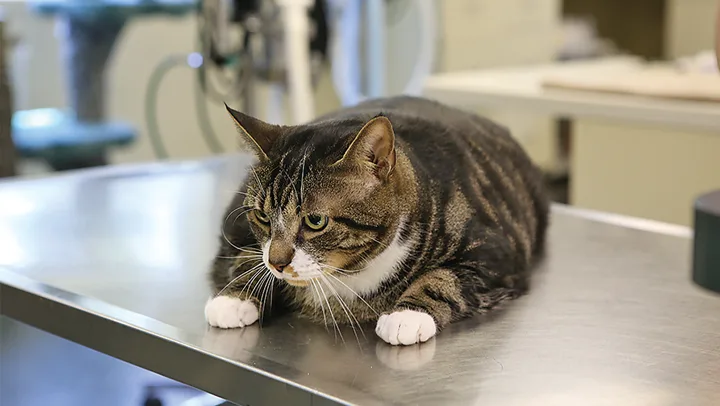
Full drug information and a pet owner handout can be found at Plumbs.com.
What is Velagliflozin?
Veterinarians have another therapeutic option to manage feline diabetes mellitus. Velagliflozin is the first oral liquid agent approved to treat diabetes mellitus in otherwise healthy cats.
Pharmacology of Velagliflozin
Velagliflozin works by inhibiting sodium-glucose cotransporter-2 (SGLT2), decreasing renal glucose reabsorption and increasing urinary glucose excretion.
Contraindications of Velagliflozin
Velagliflozin is contraindicated in cats and should therefore not be used in cats previously or currently treated with insulin, cats with insulin-dependent diabetes mellitus, or cats with or that have evidence of hepatic disease or reduced renal function.
Velagliflozin increases the risk for potentially fatal diabetic ketoacidosis (DKA) and euglycemic DKA, which can occur any time during treatment, including in cats with improved glycemic control. Velagliflozin should be immediately discontinued if DKA is diagnosed or suspected.
This drug should also not be initiated in cats with the following:
current anorexia, dehydration, or lethargy
ketonuria or ketonemia
current or history of DKA
clinical signs or other objective evidence (fPL level >12, diagnostic imaging) within the previous month consistent with pancreatitis or history of pancreatitis
chronic or unresponsive diarrhea
cachexia
BUN >2 mg/dL or bilirubin >0.5 mg/dL
Adverse Effects of Velagliflozin in Cats
Common adverse effects include GI signs (eg, vomiting, diarrhea, anorexia), weight loss, lethargy, dehydration, UTI, and elevations in laboratory parameters (ie, BUN, fPL, bilirubin). Pancreatitis/pancreatic necrosis, hepatopathy, hepatic lipidosis, and death have occurred but are rare. Velagliflozin-induced glucosuria results in an osmotic diuresis that increases the risk for dehydration.
Additional Information
The risk for potentially fatal DKA and euglycemic DKA is increased during velagliflozin treatment; careful screening is required before initiating therapy, and diligent monitoring should be continued during treatment.